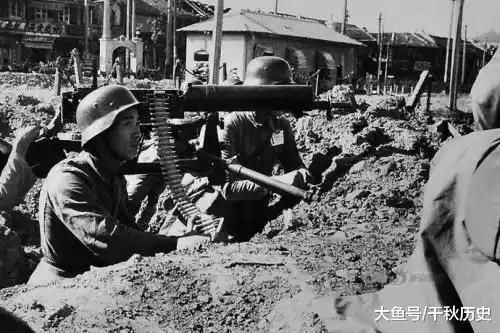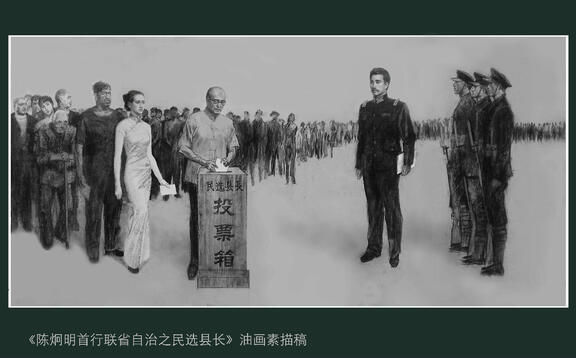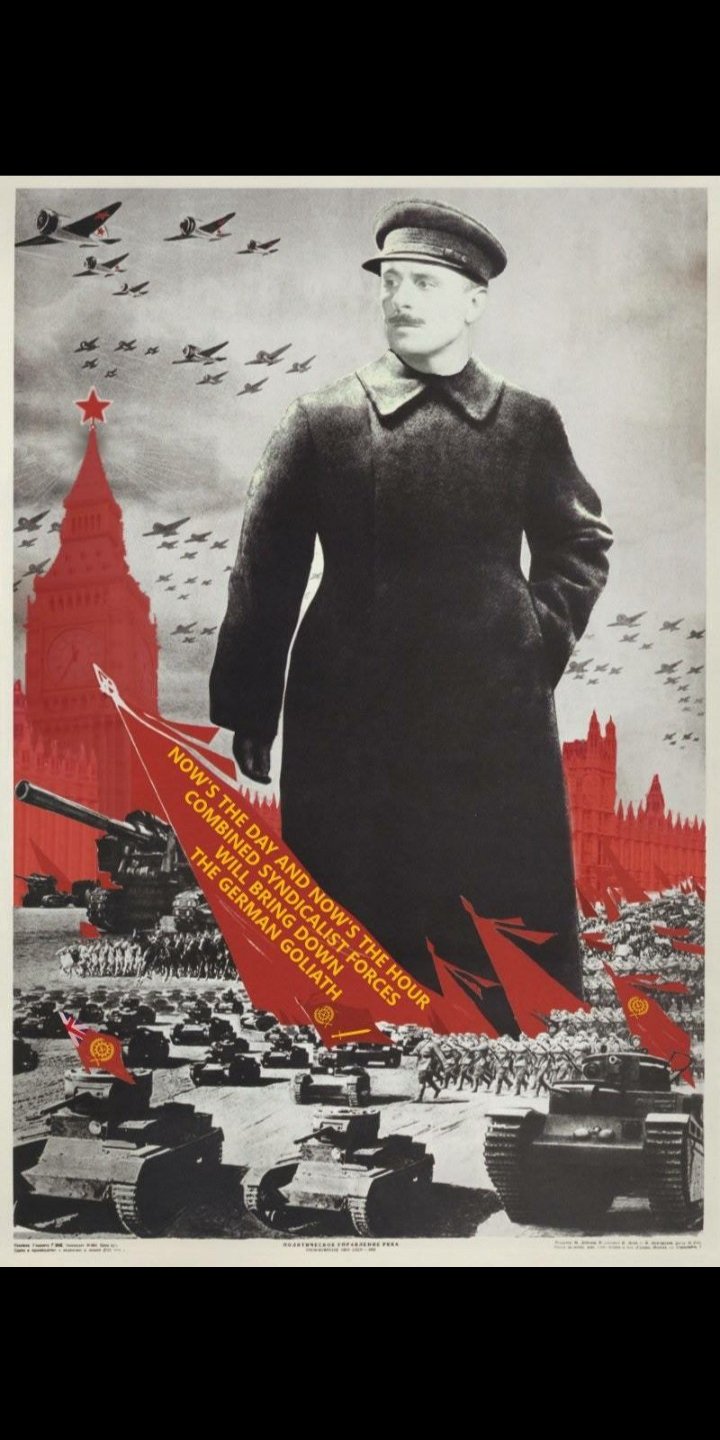German Army troops march through Paris, 1944
Parisian Communal Guard units continue the fight in SouthWest Paris, a few days after the official fall of the city
Parisians take cover as Red Resistance fighters ambush a German military parade, 1945
The Second Occupation of Paris was a German military operation lasting from June 21st, 1944 to November 19th, 1950. When the Second Weltkrieg broke out in Europe in 1942 many international observers expected it to go much like the first since the Second American Republic was still fiercely isolationist as it struggled to rebuild and the Internationale, the alliance of syndicalist nations in Europe had already been draining their armies in a brutal war on the Italian peninsula. However as German and Reichspakt artillery on the Wilhelm Line began to bombard Commune positions they were surprised to find the large guns had little affect. When the first German troops crossed into the Commune they were quickly set upon by Commune forces, reinforced by British reinforcements that began to stream into Calais, operating from fortified strong points stretching from the Channel to Switzerland. The Germans quickly learned that their patience in pouncing would cost them dearly as the so called Red Line was a tough line to cross due to over three decades of constant fortification. After six months of grinding warfare German field marshal Eric von Manstein finally punctured the line after his men literally burned their enemy out of their last fortifications near Lens on the Franco-Walloon border. With a hole suddenly open German reserve forces poured through to widen it and deepen the puncture. Commune forces flooded the area to stem the bleeding but as Canadian forces landed in Scotland their British allies were forced to evacuate nearly all of their forces back to the Home Island to fight the landings, leaving a skeleton force in France. While the
Levee en Masse policy of the French government left them many soldiers most of the men being rushed to plug the holes left by the retreating British were green militia without the experience of fighting. Suddenly, when just a month prior things seemed to be going swell, suddenly the French Liberation Army was hard pressed all along the Line. Finally on September 12th, 1943 the Germans broke the line at several major points and dozens of smaller ones forcing Maurice Gamelin to pull the Army off their first line towards their second along the Somme River; this dredged up painful memories of the First Weltkrieg. The line stabilized after a dizzying German advance stretching from Abbeville to Reims to Nancy before stretching South towards Switzerland. With Red Militia causing trouble behind the lines the Germans were forced to rest on their laurels and conduct a brutal anti-Resistance campaign known as
L'ecrasment in France, or The Crushing, as anybody with a suspected link to Syndicalist terrorism was rounded up and shot by the military government of Occupied France. Its estimated around 10,000 people were killed by the Germans after a 2005 investigation by the Weltkrieg War Crimes Commission in Berlin and while reparations were paid to surviving family and relatives upon the restoration of peace many French citizens still harbor a deep hatred of Germany due to their actions during the War.
Six Frenchmen go before the firing squad in Arras. You can see behind them the men who arrived before them.
On January 1st, 1943 Germany, after minute gains over the past two years, launched the Second Grand Offensive, named after the offensive that knocked France out of the First Weltkrieg. Four German armies launched coordinated and savage assaults on French positions all across the line after months of relative stillness. The French fought fiercely however as Entente forces crossed into Lincolnshire in the Union and threatened the Po Valley in Italy the Communal Army was stretched thin and the lines in France proper began to fall back slowly. However the French made the Germans pay for every inch in gallons of blood and dozens of bodies with some battles going down as infamously bloody in military history. As the Germans inched towards Paris the city descended into panic as civilians not conscripted began to flee south in droves. Meanwhile those who were militia were given shovels and hammers and a rapid defensive perpetration was made. Trenches were dug, snipers nests built and barricades went up on Paris's streets for the third time in a century as the City of Light went dark to fight against the near constant German bombers. When the German Army entered the suburbs of the city the wide avenues the city was known for became killing fields as machine gun nests swept across German lines and snipers picked off survivors. Fighting moves off the streets and into the homes, apartments and cafes that filled Paris as walls were knocked out to get between buildings rather than risk being shot going outside. The fighting was hard and lasted for months as every room harbored a potential enemy for both sides requiring thorough sweeps of every building to ensure whatever side was advancing wouldn't get shot in the back. A centerpiece for the fighting was the Eiffel Tower for both its symbolic value and its use as a observation post for artillery spotters. The fighting became so fierce around the famous monument that eventually the local German commander, a man named Otto Skorenzy, decided to blow it up rather than let it fall into Communard hands once again. The explosives failed to completely topple the tower but weakened it to such a degree that it was deemed to unsafe by both sides to be usable. While Skorenzy would claim until his dying day he was ordered to bomb the Tower he was still dishonorably discharged and almost court martialed for "unnecessary destruction of world monuments". While the fighting outside Paris stayed decidedly in the Germans favor as the increasingly drained and green Communal Army was steadily pushed back the fighting in Paris remained glacial.
The Notre Dam Cathedral was also shelled heavily during the battle. Both sides blamed the other side so nobody was tried for the extensive damage the Cathedral sustained during the battle.
As June, 1943 began to come to an end the Battle of Paris was all but decided. While progress was slow for the Germans it was still progress and with the Communal Army being forced back all around Paris the defense was increasingly taken up by Parisians themselves. Modern historians put the end of the battle as August 3rd, 1943 after the last Communal Army regiment in the city, the 152nd Bordeaux Infantry Battalion were forced to surrender and German newspapers also declared "Victory in Paris" on that day. However through study of both Army logs and personal journals its evident that major fighting didn't die down until at least August 15th as the last militia units were crushed by German army elements while incidents of "rouge terrorism" striking military positions continued for the duration of the occupation. Nevertheless by mid-August most fighting within the City of Lights had died down and most of the German Army moved on to the Front with Paris being garrisoned by a mixture of National Defense units and regular Army units on rotation back to Germany with Paris being a regular stop on the way back. Paris under the occupation, according to French reporter Gilberte Brossolette, was much like France before the Revolution. German soldiers were by and large cordial to the Parisian population who gradually grew to at least tolerate the occupation. The 10 pm curfew put a damp blanket of the once rather lively Parisian night life and the ever present specter of Communard propaganda getting you arrested also troubled many, but Paris quickly returned to a sense of normalcy as people adjusted. The Germans initially attempted to restore the damaged Notre Dam cathedral and Eiffel Tower but both projects were deemed unfeasible during wartime after appraisal. Parisians were however still skeptical of German newspapers that became the official newspapers of the Occupied lands. They spoke of massive victories over Commune forces and entire armies surrendering en masse. However Commune newspapers smuggled into Paris told the opposite with it being claimed Kaiser Wilhelm II was assassinated by Commune agents seven times between July - August 1944. Everybody save for the diehard Communard supporters and few remaining Republicans accepted one side in its totality. Even with news filtering in most Parisians were able to get a general picture of the War's outcome. Nevertheless it was not looking good for the Commune and many began to steel themselves against whatever horrors the Kasierreich was going to force on France once more.
German officers take some R&R at a Parisian cafe
Finally on March 17th, 1946 the Commune was forced to surrender after Marcel Deat was captured by German forces attempting to flee to Syndicalist Spain (which had remained strictly neutral for the entire conflict). With the SRI already reduced to a few mountain holdouts and the Union of Britain stubbornly holding out but on its seemingly inevitable death throws, the Kaiserreich negotiated a peace treaty with the Commune. The Treaty was rather lenient with among other things forcing France to pay a light indemnity for the loss of soldiers suffered by German Army, limiting the French military to 150,000 people, the disbandment of the Syndicalist government and forcing their entry into the Reichspakt. With the Communard government having disbanded many wondered who the Germans would 'suggest' lead France into the future. They would wait four years. In Berlin the Royal house wanted a German-style monarchy led by a relative to Wilhelm while the civilian government wanted to restore a Republican government. The two sides bickered as Paris, and all of France, remained under direct military administration. However things were getting visibly better. German troops in Paris were replaced with collaborators in greater numbers, the rationing was relaxed and then eventually ended entirely and the military government was seemingly preparing to hand power to the civilian French government, whatever government that may be. After three years of debate the new German government dropped a political bombshell on France. They were organizing a referendum to let the French people choose their new government. Would they want a new Republic? A German style monarchy or would they accept the return of the Exiles? That last choice stirred up a frenzy in Paris and France as a whole as fierce debate erupted across the nation. For their part the Germans played peacemaker. They broke up debates when they got to rowdy and put down riots when they broke out. As the date of the referendum approached polls were all over the place. An overwhelming majority want a Hohenzollern monarchy! A plurality want a Republic! Most want a return to Syndicalism! Nobody knew what would happen. Finally however the date arrived and France went to the polls.
French citizens vote in downtown Paris
After a day of voting and another day of counting and recounting by a Franco-German Election Board the results were finally announced, the Exiles would return. The Exiles were surprised at the result as morale in Algers was at an all time low after the botched Marseilles Landings. Many gave up on reclaiming France in their lifetimes so when they got a telegram from Germany asking them to return as long as they abide by the treaty, they were ecstatic. The Estates General quickly approved the motion to return to the mainland and it was sent to President de Gaulle for his signature which everybody expected. As people began to celebrate in the streets a surprise radio address floated over the air. In it de Gaulle rejected the offer saying that it would render France little more than a German puppet. Instead he doubled down on his inauguration promise of taking France back by force 'and not as the leashed dog of some German Emperor". Almost instantly the city descended into chaos as many planned on returning home for the first time in decades and now that was being snatched away. The Estates General met in an emergency session and passed a motion declaring the President 'unfit for duty' and overturned his veto. As celebrations broke out across France and Algeria de Gaulle somberly presented his resignation letter and retired from political life. As he left he is reported to have said "
I leave a Free France to go to a hollow shell of a nation". When the first French soldiers landed in Marseilles celebrations spread across France as Interim President Paul Ramadier declared the start of a "Fourth French Republic". Over the next few years German troops would slowly turn security and administration duties over to the Fourth Republic with the Military Government being disbanded in a grand ceremony in Paris in 1950. With that the Occupation was over and France was restored. In a sense. Critics of the Fourth Republic call it little more than a stage play for the German corporate and military interests that continued to exert extreme amounts of influence over the French government for the next thirty years. They also point to the fact that the German Army intervened in France to depose the "Neo-Syndicalist" PIP, a successor to the CGT, after they were elected to lead France in the 70s. They argue that it wasn't until the dawn of the Fifth Republic in 1986 that France was truly independent. This view is however a minor one only backed by fringe historians.
Troops from the French Army of National Liberation enter Paris, 1950
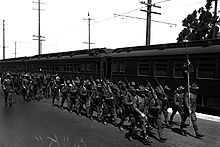


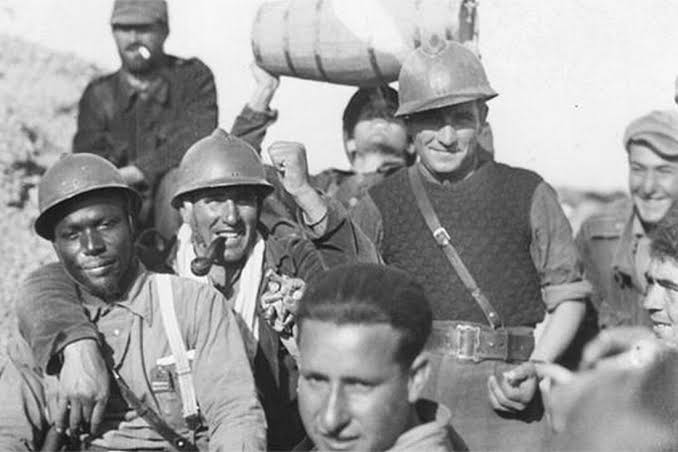



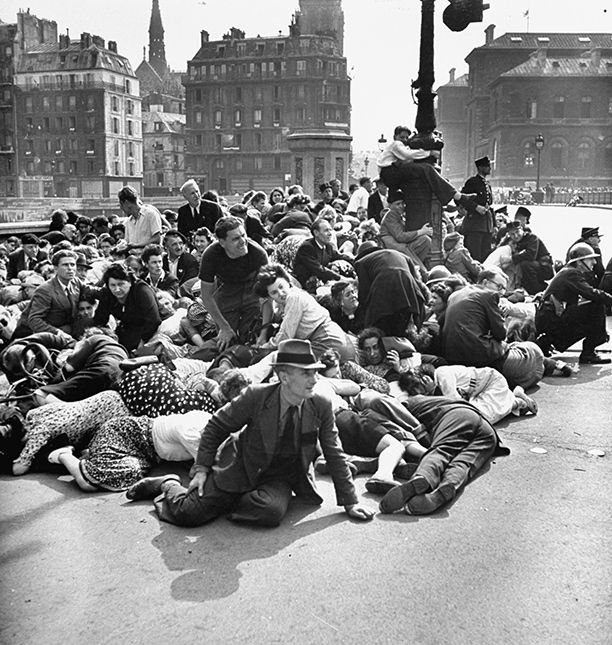
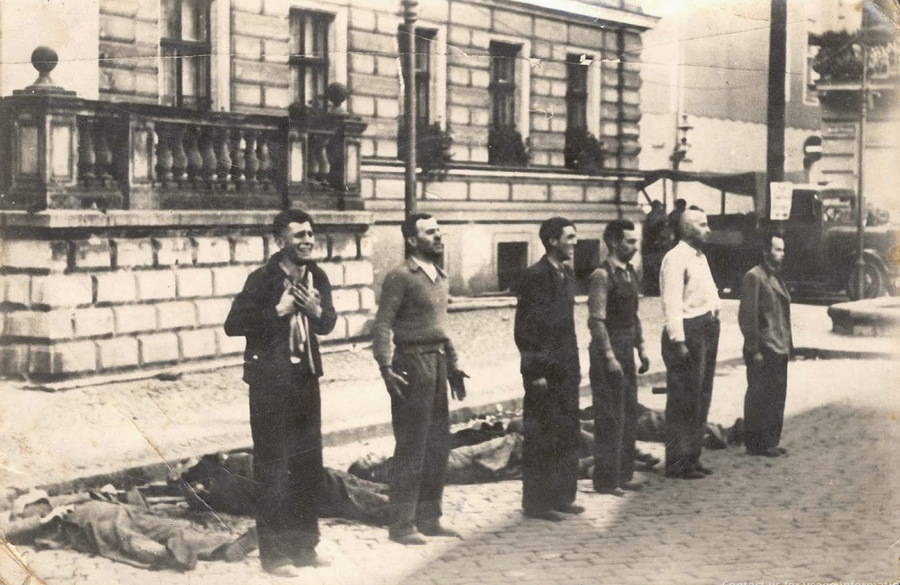
/https://public-media.si-cdn.com/filer/f7/e3/f7e315b9-165a-4a41-a46b-6380b50d9a83/shell_explosion_cathedral_at_rheims.jpg)




